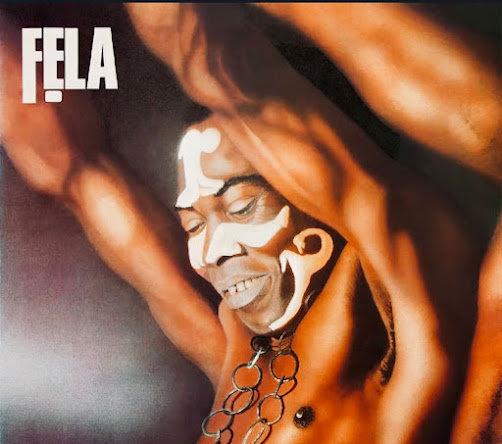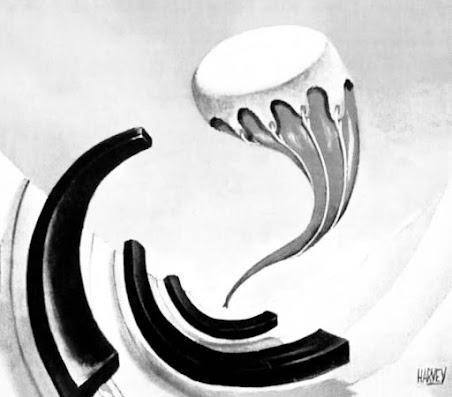Government Chicken Boy- Musical Analysis 1
The 1960s and 1970s marked a remarkable shift in the social
landscape, particularly in music, culture, and politics. The period witnessed a
transformational change in the socio-political arrangements, cultural ethos,
and musical expressions, which profoundly impacted the society of the time. The
era was characterized by the emergence of new forms of music, revolutionary
cultural movements, and significant political upheavals that reshaped the
social order and challenged the existing power structures. During political
turmoil and government corruption in Nigeria, Fela Kuti, a renowned musician,
rose to prominence as a significant and influential figure. Fela's music was a
form of entertainment and a powerful tool he used to combat systemic injustices
and corruption perpetrated by the government. His musical compositions were
utilized as a tool for resistance, effectively subverting the period's
prevailing social and political norms.
Fela Kuti
was born into a family with a solid educational background. His mother was a
prominent figure in Nigeria's anti-colonial movement, while his father was
instrumental in creating the education system for English-speaking West Africa.
From an early age, Fela was urged to pursue piano lessons, which resulted in
him becoming the leader of his school choir and eventually studying classical
music in London. However, he soon discovered his passion for jazz and began
playing the trumpet. Fela returned to Nigeria and founded a new kind of music, a mixture of traditional Nigerian music, highlife,
American funk, complex jazz, chanted vocals, and soul influences, called
Afrobeat. He used this music as a weapon to speak out and criticize the corruption of Nigerian
government officials and the mistreatment of Nigerian citizens, for which he
was repeatedly arrested and beaten. Fela Kuti introduced a pioneering style of transgressive
behavior in Nigeria that included publicly smoking marijuana, challenging
prevailing societal norms, and becoming the first countercultural icon in
sub-Saharan Africa.
Fela Kuti, "Government Chicken Boy" Army Arrangement, Knitting Factory Records 1985 written by Fela Kuti and produced by Fela Kuti and Bill Laswell, is by far not the most renowned as some of his other works, but the album holds a significant value to me due to the nostalgia it evokes. It's a reminder of my formative years and the music I grew up listening to. I also believe that the complex rhythms played for an extended period are underrated and show the level of musicianship and how each member of the band is the cream of the crop and at the top of their game.
Lyrics
"It's time to put our heads together." When Fela addresses his fellow Nigerians, he emphasizes the need for collective action against the government's oppressive policies. A dissonant guitar and trumpet melody underscores Fela's defiant message to his political opponents. He asserts that he will not be silenced even if they imprison him. Fela not only spoke out against the Nigerian government, but I believe he also showed us that our right to protest is being threatened. This period also marked a time when Fela's residence was subjected to several violent attacks. Given Fela's strong inclination towards challenging norms and advocating against inequalities, it is unsurprising that he has written a song addressing the issue of blind conformity. Fela criticized the actions of individuals who unthinkingly followed authority without questioning it.
Kukuru uku
It’s time to put our heads together
Meetin’oh
Kukuru uku
It’s time to put our heads together
Meetin’oh
Meetin’oh
Meetin’oh
Make our life go dey better
Meetin’oh
Better life make dey fine go
Mugu oh oh
Make nobody go dey fool us
Mugu oh oh
Make nobody make us fools
Meetin’oh
Make our life go dey better
Meetin’oh
Better life make dey fine go
Mugu oh oh
Make nobody go dey fool us
Mugu oh oh
Make nobody make us fools
Mugu mugu mugu mugu mugu mugu mugu
Kukuru uku
Everybody wake up in time to see
Kukuru uku
It’s time to put our heads together
Meetin’oh
Meetin’oh
Kukuru uku
It’s time to put our heads together
Meetin’oh
Da mi lowun, da mi lowun
Da mi lowun, ah, ah, ah
As you wear your watch
And look the time
6 P.M. chicken quench
Kukuru uku
Crooked life, crooked show
Gata gata way, na chicken style
Kukuru uku
Since the time dem born am
Na back him hand him dey dey
Kukuru uku
The only time wey him hand dey for side
Na when him dey run from fear
Kukuru uku
Try to fly na wahala for am
Na mouth him go take him land
Kukuru uku
Show am plenty chop, na small sens he gets
Na one by one him go chop
Kukuru uku
As he will chop am one by one
Somebody go sweep am from him mouth
Kukuru uku
Now the picture of chicken na begs for you to see
Kukuru uku
My friend tell me ... all over... offices dey
The "Government Chicken Boy" musical composition employs complex and sustained rhythmic patterns to achieve an upbeat tempo reminiscent of house or techno music. Despite the song's dramatic and weighty melody, it maintains a certain nimbleness to fit the liturgical lyrics and chants. The composition is structured on a 3-2 rhythm clave, which involves alternating patterns of three and two beats. This type of clave is known for its dance-friendly quality. Who knew the organ and cowbell could be used to create such an infectious groove suitable for dancing. Their unique timbres and rhythmic interplay can produce compelling polyrhythmic patterns.
Stewart, Alexander. “Make It Funky: Fela Kuti,
James Brown and the Invention of Afrobeat.” American Studies, vol.
52, no. 4, 2013, pp. 99–118. JSTOR,
http://www.jstor.org/stable/24589271. Accessed 18 Feb. 2024.
Ilesanmi, Alaba . "Fela
Anikulapo-Kuti". In obo in Music. 18 Feb. 2024.
<https://www.oxfordbibliographies.com/view/document/obo-9780199757824/obo-9780199757824-0287.xml>.
"Fela
Kuti." Wikipedia, Wikimedia Foundation, 13 Feb. 2024,
en.wikipedia.org/wiki/Fela_Kuti. Accessed 17 Feb. 2024.
"Army
Arrangement." Wikipedia, Wikimedia Foundation, 30 Jul. 2023,
en.wikipedia.org/wiki/Army_Arrangement. Accessed 17 Feb. 2024.
Britannica, The Editors
of Encyclopaedia. "Fela Kuti". Encyclopedia Britannica, 19 Jan. 2024,
https://www.britannica.com/biography/Fela-Kuti. Accessed 17 February 2024.
https://www.afrobeatmusic.net/html/government_chicken_boy.html


I haven't heard of this song or artist before now but I really enjoyed it. I love music with a purpose like this.
ReplyDeleteI love the song you shared for this analysis! This song certainly has a rather catchy and simple beat and melody. The introduction of different instrumental solos really has a jazzy soul to it, keeping the song very catchy as it progresses. Unfortunately I don't think I have a trained enough ear to identify polyphonics and it makes some of the instruments feel rather detached from the beat. Ultimately, I found myself bobbing with the song the entire time I was writing this.
ReplyDelete